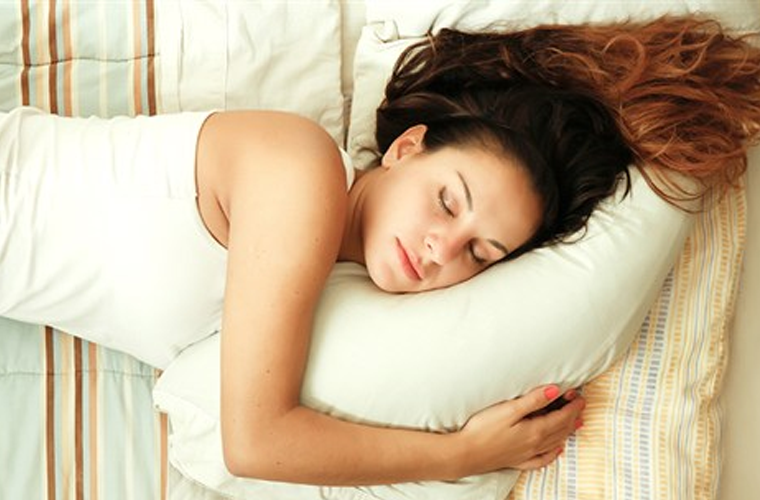Trending Now
- 830 voters names go missing in Kavundampalayam constituency
- If BJP comes to power we shall consider bringing back electoral bonds: Nirmala Sitaraman
- Monitoring at check posts between Kerala and TN intensified as bird flu gets virulent in Kerala
Health & Lifestyle
8 Secrets to a Sound Night’s Sleep
![]() January 9, 2017
January 9, 2017
by Emma Charlotte Bangay
There is no denying that a good night’s sleep can slay all dragons – stress, anxiety and even over-eating! But what is the secret to a superior evening of slumber? Emma Bangay speaks with The Sleep Coach – and shares what works for her.
Are we all capable of achieving great shut-eye and how much of it is in our mind – or our bedroom? We speak with Cheryl Fingleson, The Sleep Coach, to get the facts on how to get a full night sleep!
5 Steps to Better Slumber
1. Regulate
“Establishing a regular bedtime and rising time routine keeps your body in check,” explains Cheryl. “Through repetition, you will train your body and your brain into this pattern.”
What works for me: If I’m home I try to have lights out by 10.30pm, or I’m going to want to stab myself in the face when the alarm for gym goes off at 5.30am! It doesn’t always work, but by implementing this from Monday to Thursday, I have enough in the tank come the weekend.
2. Darken
Ensure your bedroom is dark enough, as this will promote uninterrupted sleep.
What works for me: I just purchased some block out blinds from Ikea and can I just say, my life has changed – and so has my wake time! However, during the day I am all about the light. Everywhere! Sun flooding through the windows is the only way to go. At night I avoid as many downlights as possible and keep lighting warm with floor lamps instead. This creates a beautiful energy and also a chilled existence with the kids!
3. Neutralise Noise
Sleep in a quiet environment Cheryl suggests. “Our brain is wired to focus on the noise around us especially if we have children,” she says.
What Works For Me: If you live in a bustling urban environment near a tram line (like me) or have chickens (like me) or have children (yep, got those too) then you may find (like me) that the hum of the last tram or the first sunrise holler of the hens will become a part of your sleep pattern. I got lucky there as I love this background noise at night. But if you can’t sleep through some noise, then earplugs are your friend!
4. Wind It Back
Create a routine before going to bed that promotes relaxation, Cheryl says. “This could include a warm bath, reading a book or warm drinking milk.” The amino acid tryptophan in milk helps produce serotonin (the happy hormone) and melatonin (the sleep hormone), she explains.
What Works For Me: Lactose-intolerant little old I has a cup of peppermint tea with the husband each and every night instead of milk. It helps to curb the evening sweet tooth and fill the gap that a glass of wine wants to mid week. We also turn our Wifi off around 9 pm if neither of us is working which making books – or shut eye – the only option.
5. Switch It Off
“Turn off all electricals before bed and change you phone to flight mode,” says Cheryl.
What Works For Me: My husband and I have always had a strict ban on any tech in the bedroom. No phones, no laptops, no iPads. (That is unless we are watching a movie together.) If one of us needs to take a call or text, we simply leave the room. It’s a little effort for a whole lot of sanctuary!
Expert Sleep Secrets
It’s not all warm milk and early bed times that boost your sleep power. Here are some others Cheryl strongly suggests:
6. Exercise
“Exercising regularly makes it easier to fall asleep and contributes to sounder sleep,” says Cheryl. “However, it’s important to choose when you exercise. Immediately before going to bed will make falling asleep more difficult,” she says. “As exercise right before bed stimulates your heart, brain, and muscles — the opposite of what you want at bedtime. It also raises your body temperature right before bed, which is not what you want to help you fall asleep.”
7. Snoring
“Snoring is the primary cause of sleep disruption for many adults and children,” says Cheryl. If your child or partner snores, get them checked out immediately by your GP. Why? Because snoring is not just an annoyance and hindrance to a happy nights sleep, habitual snoring could be a sign of more sinister health problems caused by an obstruction to the natural breathing pattern or blockage of an airway. Intermittent snoring may be due to nasal congestion or an undetected deformity of the nasal passage, but either way, it’s best to get it checked out. Your doctor may refer you to a sleep specialist who can diagnose and treat snoring easily resulting in better rest for you and your frustrated bedfellow!
8. Seasons
A change in season can influence sleep due to the varying patterns of light, darkness, and temperature. We all have to accommodate daylight savings (hence the curtain purchase!) making it easier to manipulate daylight as you need.
Keeping room temperatures even is also key to a decent nights rest but be very careful about placing portable fans or heaters in children’s rooms unattended.
I always put a cool hand towel on the kid’s heads or tummies when they are going to bed in summer – – as my mum did for me – which helps to lower body temperature and also creates a final connection for the day between us both.
Seasonal allergies can also hinder the sleep cycle so heavy breathing or snoring in those susceptible to sinus allergies may also occur in spring.
Are You Getting Enough?
Sleep needs vary across ages and are especially impacted by lifestyle and health, says Cheryl. “To determine how much sleep you need, it’s important to assess not only where you fall on the “sleep needs spectrum,” but also to examine what lifestyle factors are affecting the quality and quantity of your sleep such as work schedules and stress.”
According to guidelines set by the National Sleep Foundation, here is her summary of how much slumber you need!
Newborns (0-3 months): Sleep range narrowed to 14-17 hours each day (previously it was 12-18)
Infants (4-11 months): Sleep range widened two hours to 12-15 hours (previously it was 14-15)
Toddlers (1-2 years): Sleep range widened by one hour to 11-14 hours (previously it was 12-14)
Pre-schoolers (3-5): Sleep range widened by one hour to 10-13 hours (previously it was 11-13)
School-age children (6-13): Sleep range widened by one hour to 9-11 hours (previously it was 10-11)
Teenagers (14-17): Sleep range widened by one hour to 8-10 hours (previously it was 8.5-9.5)
Younger adults (18-25): Sleep range is 7-9 hours (new age category)
Adults (26-64): Sleep range did not change and remains 7-9 hours
Older adults (65+): Sleep range is 7-8 hours (new age category)























